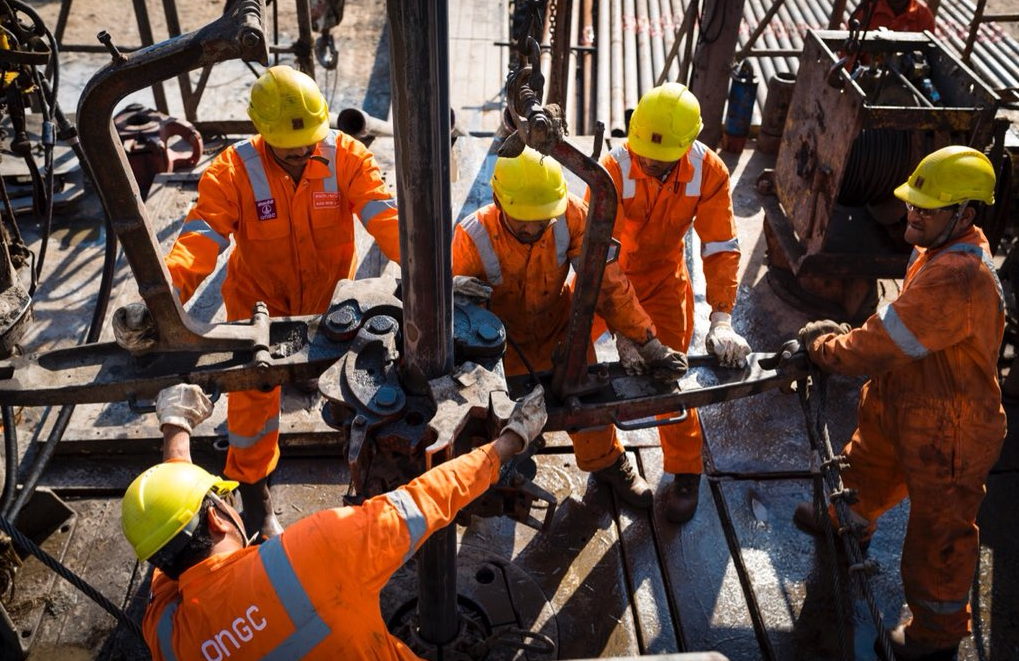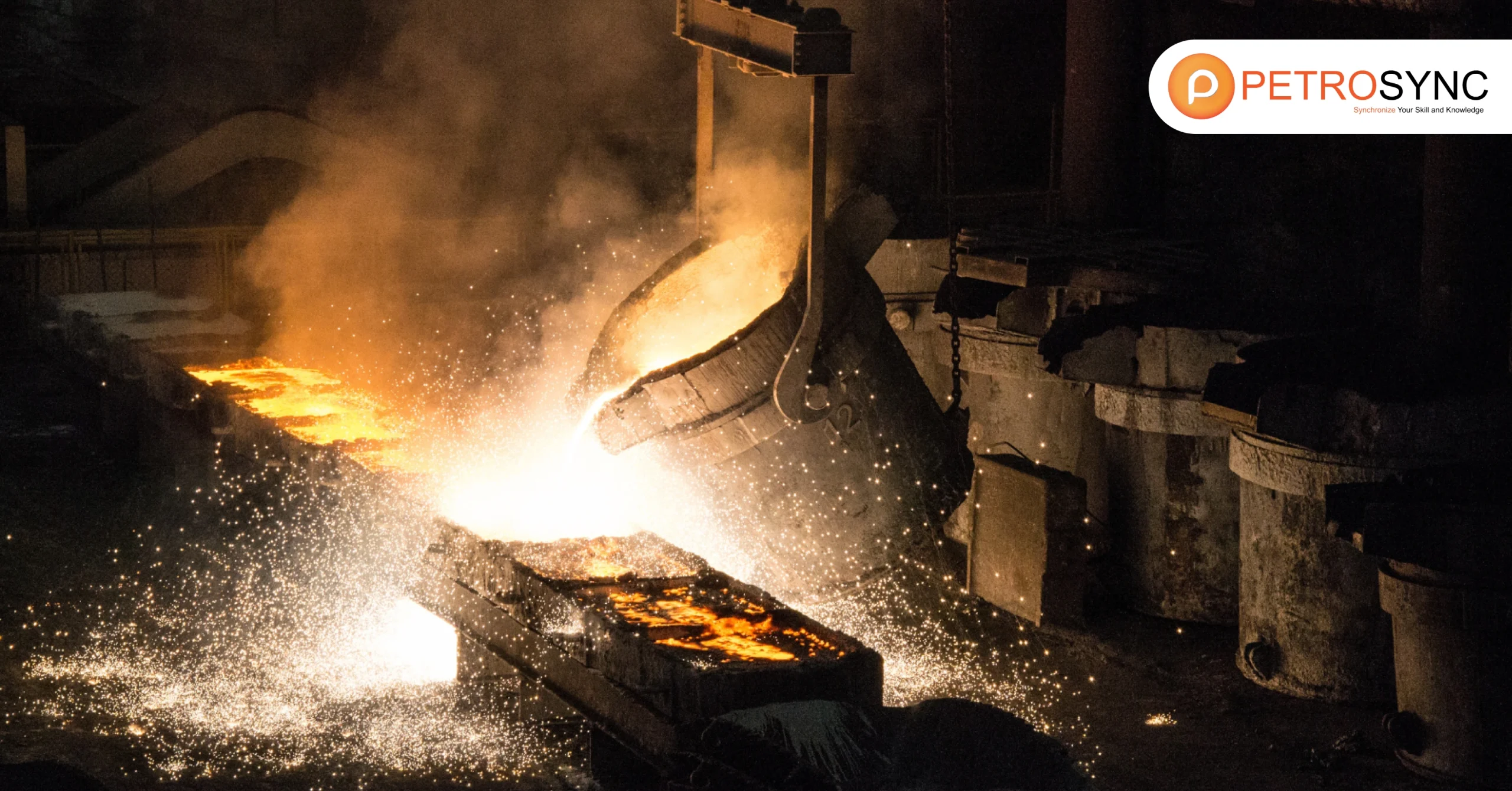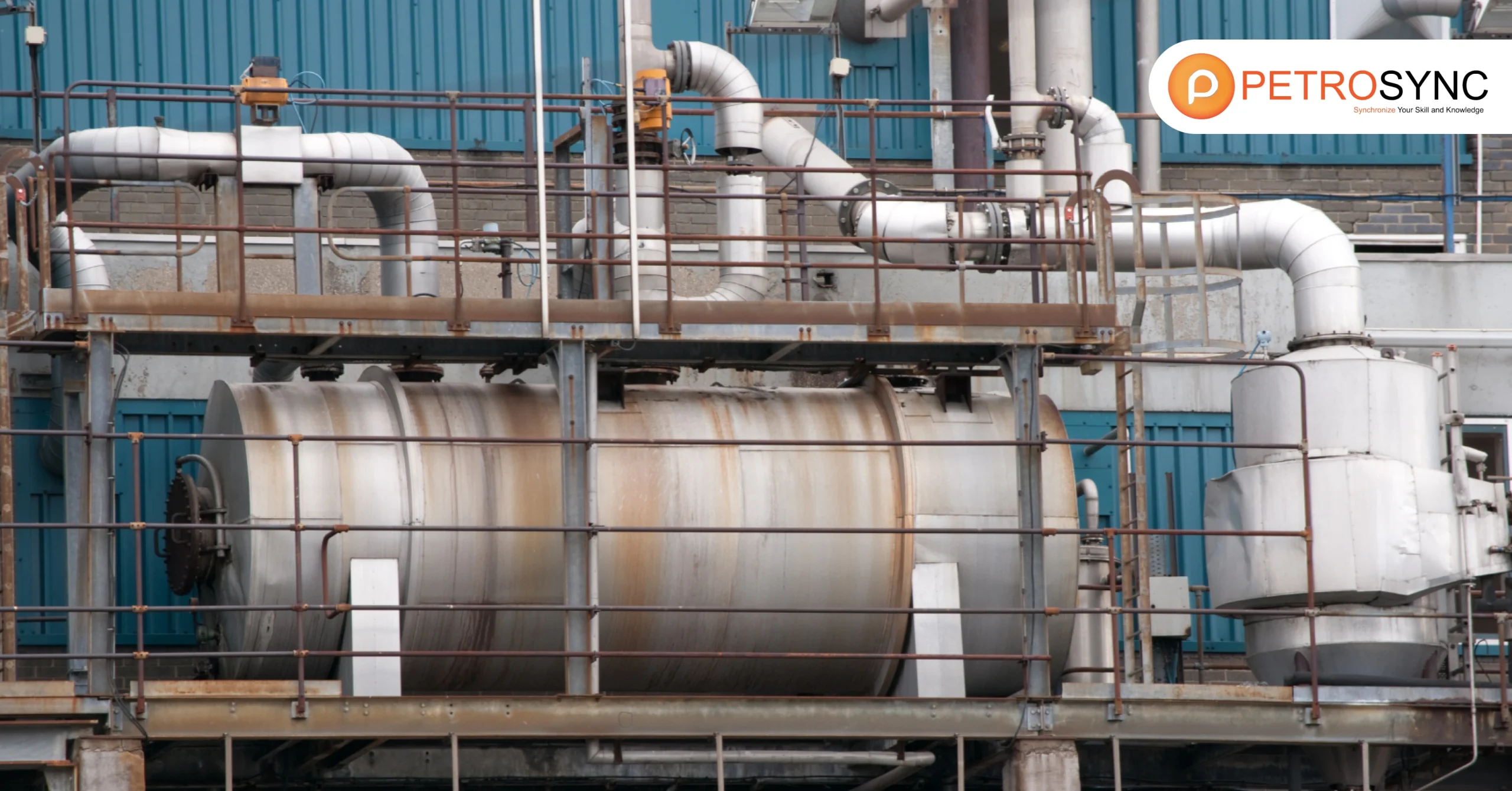The drilling course is one of the most prominent topics in the petroleum industry due to the complex skills that engineers must master to excel in their roles. In this article, you will delve into the significance of drilling courses offered by reputable institutions like PetroSync. We will discuss the essential aspects covered in these courses, their relevance to industry professionals, and the potential benefits of enrolling in such programs.
What Is Drilling?
Drilling in the oil and gas industry involves the drilling and pumping of oil from underground wells. This is done using specialized equipment like drill bits and drilling rigs. The goal of drilling is to reach underground reservoirs where oil or gas is trapped. Once the well is drilled, it can be used to extract these valuable resources to meet energy demands around the world. Drilling plays a crucial role in the production of oil and gas, allowing us to access and utilize these important energy sources.
What Is The Basics of Drilling Course?
The Basics of Drilling course provides fundamental knowledge about the process of creating holes or wells in the earth’s surface. It covers essential topics such as the equipment used, drilling techniques, safety measures, and the purpose of drilling in various industries like oil and gas exploration. This course aims to help learners understand the foundational concepts and principles behind drilling operations, making it accessible and informative for beginners or anyone seeking to enhance their understanding of this important field.
|
Topic |
Description |
| Introduction to Drilling | Overview of drilling processes and its importance |
| Types of Drilling | Different drilling methods and their applications |
| Drilling Equipment | Introduction to drilling rigs, bits, and tools |
| Drilling Techniques | Basic drilling techniques and procedures |
| Safety in Drilling | Importance of safety measures during drilling |
| Environmental Impact | Understanding the environmental aspects of drilling |
| Drilling Operations | Step-by-step process of drilling a well |
| Well Completion | Basics of completing and preparing a drilled well |
| Industry Applications | Drilling’s role in various industries like oil & gas |
| Regulations and Standards | Overview of drilling regulations and standards |
This outline covers essential aspects of a basic drilling course, providing a comprehensive understanding of the drilling process, equipment, safety measures, and its applications across different industries.
Is There Any Advanced Drilling Course?
Advanced drilling courses typically cover more specific and advanced skills related to drilling operations. PetroSync, for example, offers a range of advanced drilling courses that delve into specialized areas of drilling expertise.
Some examples of our advanced courses include Advanced HPHT (High Pressure High Temperature) Drilling, Applied Drilling Well Engineering, Advanced Well Log Analysis, and Well Completion and Workover. These courses are designed for professionals looking to enhance their knowledge and proficiency in advanced drilling techniques, technologies, and strategies used in the oil and gas industry.
What Are Drilling Course Topics Provided by PetroSync?
PetroSync provides thorough training programs in drilling that cover a variety of important topics for professionals working in the oil and gas sector.
1. Applied Drilling Well Engineering
In PetroSync’s Applied Drilling Well Engineering course, you will explore the details of well design and well construction intensively over five days. The goal is to give you, as a well engineer, practical tips and advanced methods to succeed in your job.
During the program, you will take a hands-on approach, treating well construction as a careful design process. Through real-life situations and examples, you will improve your theoretical knowledge and sharpen your skills in creating wells.
The course covers every aspect of well design and operations, including things usually handled by contractors. This will help you deepen your understanding and adjust to changing situations as you move forward.
| Registration Fee | USD 3550 |
| Duration | 5 Days |
| Available Date |
|
2. Advanced Well Log Analysis Interpretation
In the Advanced Well Log Analysis & Interpretation training, you will explore the important role that well logs play in understanding geological formations and evaluating reservoir properties. These detailed records are crucial for identifying petrophysical properties that determine the economic worth of a reservoir.
As a participant, you will learn methods for analyzing and interpreting well logs, which are vital for maximizing oil recovery in the exploration and production (E&P) industry. Petrophysical engineers are key in this process, providing essential insights into subsurface reservoir data that shape reservoir models.
If you are involved in integrated petroleum engineering studies or field development plans, this training will provide you with the specialized skills necessary to contribute valuable input to development strategies.
| Registration Fee | USD 3295 |
| Duration | 5 Days |
| Available Date |
|
3. Well Completion Workover
In this training program, you will develop a thorough understanding of well completions and workover operations, which are crucial for maintaining well integrity and ensuring continuous production or injection.
You will explore various topics such as completion techniques, equipment, perforating methods, wellhead, downhole equipment, hydraulic fracturing, acidizing, squeeze cementing, and scale removal techniques.
Throughout the course, you will learn how to apply these techniques practically. This includes choosing the right completion type, designing perforation strategies, and selecting fluids. Real-world case studies will be used to analyze both successful and unsuccessful scenarios in different operating environments. This will provide you with valuable insights into completion design projects. By the end of the course, you will have the knowledge and tools to confidently handle various challenges related to oil well completions.
| Registration Fee | USD 4195 |
| Duration | 5 Days |
| Available Date | Request for In-House |
4. Well Integrity Cased Hole Logging
In the Well Integrity Cased Hole Logging training, you will delve into the basics of rock physics properties and petrophysical parameters that are essential for understanding cased hole logs. We will begin by introducing you to open-hole logging tools that are used to collect these parameters and analyze the data they provide for evaluating reservoirs. You will learn how to conduct Quick Look Well Log Interpretation to efficiently evaluate reservoir quality.
Throughout the course, we will explore the principles and techniques for interpreting cased hole logging tools, with a focus on their application in monitoring reservoirs. You will discover how to effectively use data from tools such as CBL, VDL, TDT, RST, RFT, MDT, and PLT logs to monitor reservoir conditions.
| Registration Fee | USD 3295 |
| Duration | 5 Days |
| Available Date |
|
5. Advanced HPHT Well Engineering
In the Advanced HPHT Well Engineering Training, you will experience a scenario-based learning journey designed to equip you, as a drilling and completion engineer, with the necessary expertise for High-Pressure and High-Temperature (HPHT) well operations. Throughout this course, you will explore the complexities of HPHT well design, drilling, and completion, gaining a thorough understanding of the challenges involved.
You will start by examining HPHT pressure profiles and geology, then progress through various aspects of well design while dealing with real-life scenarios. This hands-on approach ensures that you not only understand the theory and technical aspects but also gain practical experience in managing HPHT issues. If you are part of a single-client group, the course scenario can be customized to address your specific well challenges, providing valuable insights into handling HPHT challenges specific to your operations.
| Registration Fee | USD 3550 |
| Duration | 5 Days |
| Available Date |
|
6. Water Flooding Management
In the Water Flooding Management training, you will gain a comprehensive understanding of the water flooding system, which is a crucial method used for secondary oil recovery in reservoirs. This course covers all aspects of the water flooding process, from its components to how it works.
You will learn how to inject clean and non-corrosive water into reservoirs to push out remaining oil, which helps maintain reservoir pressure and improve oil recovery. By the end of the training, you will have a strong understanding of how water flooding works and will be able to effectively operate, inspect, and understand water injection systems. Real-world examples will also help you identify potential issues and implement solutions to maximize oil recovery.
| Registration Fee | USD 4195 |
| Duration | 5 Days |
| Available Date | Request for In-House |
7. Artificial Lift Method
During the Artificial Lift Methods training, you’ll learn about different solutions used to lift oil from wells and optimize production. This course covers everything within the context of the reservoir life cycle. It starts by explaining why artificial lift systems are important, then goes into details about various lift methods. These methods include Gas Lift, Reciprocating Rod Lift, Progressive Cavity Pumping (PCP), Hydraulic Pumping (HP), Electrical Submersible Pumping (ESP), Plunger, and Capillary System. For each method, you’ll understand the main components, when they are used, and their strengths and weaknesses.
| Registration Fee | USD 4195 |
| Duration | 5 Days |
| Available Date |
|
8. Stuck Pipe Prevention Fishing Operation
In the Stuck Pipe Prevention training, you will learn practical techniques that can help you eliminate or significantly reduce instances of stuck pipes. Whether you are part of the drill crew, a supervisor, or service personnel, this course will provide you with the knowledge necessary to minimize stuck pipe events and handle them efficiently if they occur. The training will utilize real-world data from your organization, customizing it to address specific situations you might face. By examining past stuck pipe incidents, we will pinpoint areas for improvement and highlight successful strategies for you to apply.
| Registration Fee | USD 2850 |
| Duration | 3 Days |
| Available Date |
|
9. Coiled Tubing
In the Coiled Tubing Operation training, you will receive a thorough introduction to coiled tubing operations and how they contribute to oil field activities. The course will explore different coiled tubing technologies, looking at both the equipment used at the surface and the tools used downhole.
Throughout the training, you will learn about the key parts, uses, and specialized applications of coiled tubing. Additionally, you will learn about backup plans for handling potential challenges that may arise during operations.
| Registration Fee | USD 2995 |
| Duration | 5 Days |
| Available Date | Request for In-House |
10. Oil Process Facilities
During the Oil Process Facilities training, you will develop a strong understanding of the basics of production operations, starting from the well to processing facilities. This course simplifies the functions of different parts in oil field operations, ensuring you grasp not only “what” they do but also “how” they function.
By learning about the variety of equipment used for production handling and treatment, you will be ready to improve operations and enhance production economics.
A primary aim of this training is to improve communication and collaboration among technical disciplines within organizations. By promoting teamwork and collaboration, we strive to boost operational performance and cut costs. Ultimately, this training is your best assurance for achieving safe and cost-effective operations. Through this course, you will develop the knowledge and skills necessary to contribute effectively to successful oil process facility operations.
| Registration Fee | USD 4195 |
| Duration | 5 Days |
| Available Date | Request for In-House |
11. Upstream Petroleum Economics, Risk, And Fiscal Analysis
In the training for Upstream Petroleum Economics, Risk, and Fiscal Analysis, you will explore important aspects of evaluating investments in the oil and gas industry. Because oil prices can be unpredictable, it’s crucial for you to thoroughly assess the economics for various business decisions, such as acquiring assets or developing fields.
During this course, you will learn how to analyze cash flows, understand economic indicators, and perform detailed probability and fiscal analyses. These skills are essential for you to evaluate the feasibility and profitability of upstream oil and gas investments in today’s ever-changing market.
| Registration Fee | USD 5250 |
| Duration | 3 Days |
| Available Date |
|
12. Wellbore Treatment
During the Wellbore Treatments training, you will gain a deeper understanding of different treatments used to improve or restore well performance. The focus will be on enhancing your knowledge and decision-making abilities to implement these treatments effectively.
To make informed decisions, it is essential for you to understand the basics of formations and reservoir properties. That’s why we will start by covering the geological and reservoir properties of vertical, horizontal, and multilateral wells. From there, we will explore concepts such as formation damage, acidizing, and hydraulic fracturing.
Throughout the course, you will learn about acidizing and fracturing quality control, how to conduct treatments, and monitor critical parameters. Through teamwork exercises, you will have the opportunity to evaluate and enhance your skills in implementing these treatments.
| Registration Fee | USD 2995 |
| Duration | 3 Days |
| Available Date | Request for In-House |
Who Should Join The Drilling Course by PetroSync?
The Drilling Course by PetroSync is suitable for professionals in various roles within the oil and gas industry. Here are the job titles of individuals who should consider joining:
- Drilling Engineers
- Drilling Supervisors
- Drilling Operations Managers
- Drilling Technicians
- Well Engineers
- Well Site Leaders
- Rig Managers
- Mud Engineers
- Drilling Contractors
- Exploration Geologists
This course provides valuable insights and skills relevant to these roles, helping participants enhance their understanding of drilling processes and techniques in the oil and gas sector.
In conclusion, taking the Drilling Course at PetroSync can be a highly beneficial step in advancing your career in the oil and gas industry. The comprehensive curriculum covers essential topics such as drilling techniques, safety protocols, equipment operation, and industry best practices. By enrolling in this course, you will gain valuable knowledge and skills that are directly applicable to your role as a drilling professional.
The course instructors are experts in the field, ensuring that you receive quality education and practical insights that can enhance your performance and decision-making on the job. Networking opportunities with fellow participants and industry experts further enrich your learning experience.
Investing in your professional development through the Drilling Course can open doors to new opportunities, improve job prospects, and contribute to your overall success in the oil and gas sector. Don’t hesitate to take this important step toward advancing your career and expanding your knowledge in drilling operations. Sign up for the Drilling Course at PetroSync today and unlock your potential in the industry.
Credit header image: ONGC

SEO specialist by day, fact-checker by night. An avid reader and content writer dedicated to delivering accurate and engaging articles through research and credible sources.






